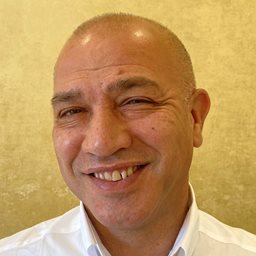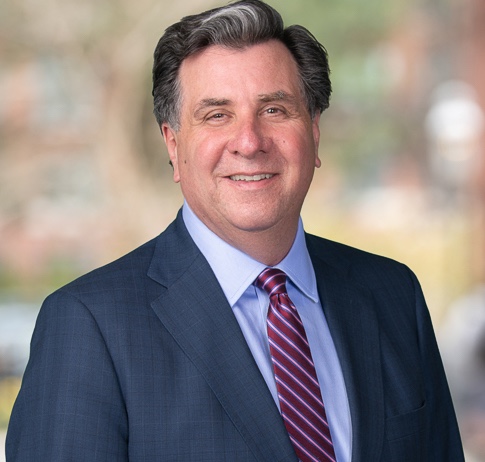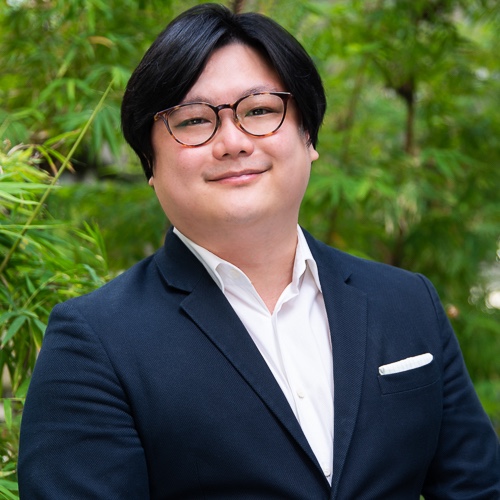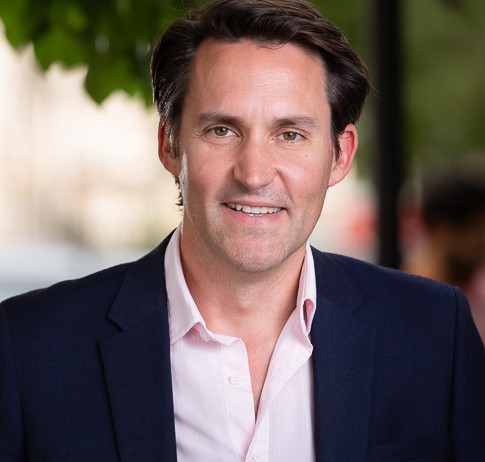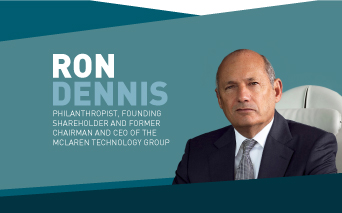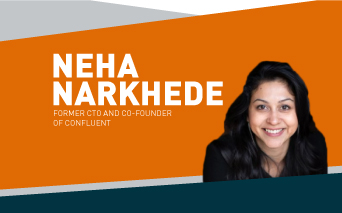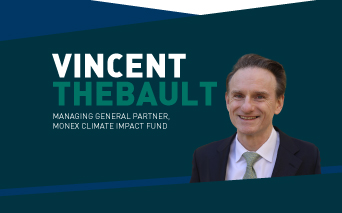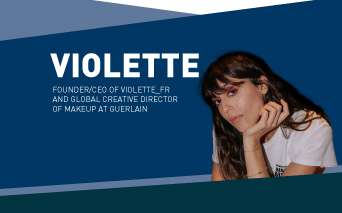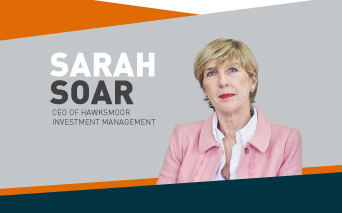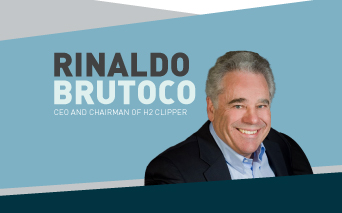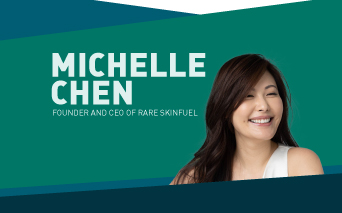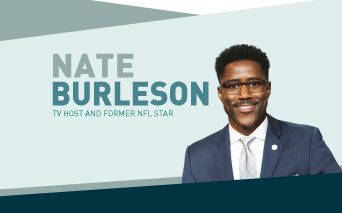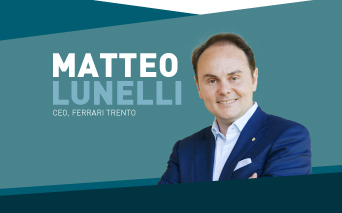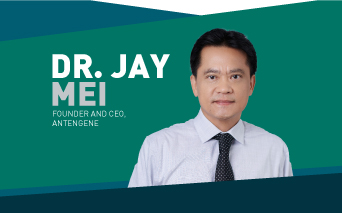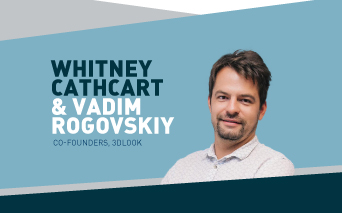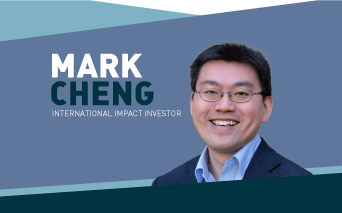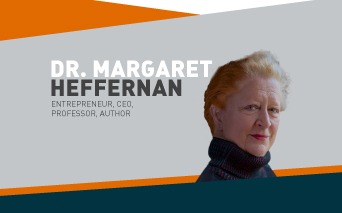Podcast
CEO and founder of Breegi Scientific, Dr. Wisam Breegi, talks faith, life changing experiences and containing coronavirus
29 June 2021 | 26 minute listen
Episode 6 of Talking success with Aasmah Mir
Aasmah talks to Dr. Wisam Breegi about how his personal experiences became the catalyst for building Breegi Scientific and that what really matters in life and business is following your instincts, listening to advice you’re given and creating opportunities for others, wherever possible. To hear more stories of success, click here.
Podcast host | Aasmah Mir
Aasmah Mir is an award winning broadcaster and journalist. She currently co-hosts the Breakfast Show on Times Radio and writes a regular column for The Times.
Guest | Dr. Wisam Breegi
Dr. Breegi is founder and chief executive officer of Breegi Scientific. He is a forward thinking inventor, entrepreneur and human rights activist, with over 25 years of management and diverse preclinical and research experience covering a wider range of medical fields.
His career is built on innovation and social justice for the disadvantaged, stemming from his upbringing and education, with a unique perspective of certain medical issues and challenges. Currently, he successfully led the efforts to obtain an EUA for his invention of a negative pressure patient biocontainment device for infectious diseases (COVID-19). He also invented the SteriDome™ and NICI™, a groundbreaking platform technology for high tech low cost infant incubators.
Dr. Breegi firmly believes in the power of win-win partnerships. In his career, he has forged several multi-stakeholder initiatives involving civil society, governments and corporate partners, big and small, global and local. He believes that in the history of humanity, we have never had so much resource, connectivity and power to make a positive difference to the lives of the underprivileged and the marginalized. If channelled properly through credible and collective sincere efforts, these attributes can make a lasting impact in the lives of ordinary people, nations and the global community at large.
He deeply understands the suffering of people, which reflects in the philosophy of Breegi Scientific, as well as his work. This is clearly represented in his involvement in many humanitarian projects outside his medical career that directly touched thousands of people. Working with several government and non-governmental agencies in the United States and UNHCR, he sponsored and settled over 2,500 refugees from the Mandaean ethno-religious minority in Massachusetts, USA.
Dr. Breegi was a National Institute of Health postdoctoral fellow in Gastroenterology at Tufts University School of Medicine. Currently, he is teaching as adjunct professor of premedical subjects at Endicott College, Boston and as guest speaker at Boston University. He is a regular speaker and panellist in global health medical device conferences.
Note: We have provided a transcript of the discussion in this podcast if you are unable to listen to the audio version. This transcript is generated using a combination of speech recognition software and human transcribers and may contain errors.
Aasmah Mir (00:02) Welcome to ‘Talking Success’ with Aasmah Mir in partnership with Withers, the international law firm.
Matteo Lunelli (00:08) People is at the heart of what we do anyway, people make the difference.
Margaret Heffernan (00:14) Somewhere, and I don’t know from where, I have a kind of sense of excellence and I don’t really like doing work that I feel falls below that.
Dr. Jay Mei (00:25) The personal aspect of what I do, or what we do, you know, in the industry, I think it is what keeps me up every day and doing what I am enjoying to do.
Aasmah Mir (00:40) I’m Aasmah Mir and in this series I get to chat to a whole range of successful people, CEOs, entrepreneurs and leaders in their field. We discuss their path, how they got to this point, how they envision the next phase and crucially what were the moments along the way where a decision they made or didn’t make made all the difference.
Dr. Wisam Breegi (01:01) It wasn’t about the money, it wasn’t about the fame, I think success, at the end of the day, is the smile.
Aasmah Mir (01:11) In this episode I’m speaking with Dr Wisam Breegi, the founder and CEO of Breegie Scientific. Now Wisam’s background is in biotec but he’s also worked as a human rights activist. When Wisam founded Breegi Scientific in 2013 he initially set out to create low cost incubators for babies born prematurely in places with limited electricity and medical supplies. However, when the pandemic struck, the company diverted their efforts to making a Negative Pressure SteriDome which allowed medical personnel to treat contagious patients more safely.
Aasmah Mir (01:148 Wisam, thank you so much for joining me.
Dr. Wisam Breegi (01:50) Thank you for having me.
Aasmah Mir (01:51) I want to begin with a fairly left field question, Wisam, if you wrote a self-help book, what would it be called.
Dr. Wisam Breegi (01:59) Probably it would be a long title, it would be ‘to climb a mountain, bruises are needed to ascend – a smooth path will not do’.
Aasmah Mir (02:10) Mmm.
Dr. Wisam Breegi (02:11) You need to struggle to really see who you are and what’s ahead of you because otherwise you will not live.
Aasmah Mir (02:17) And briefly has that been your experience?
Dr. Wisam Breegi (02:20) Yes, well a lifetime experience, so [laughing]…
Aasmah Mir (02:24) We’ll get to that, we will get to that – there’s a lot to talk about actually and I mentioned in the introduction that you were a human rights activist, so tell us a little bit about your background and how you got into medicine and human rights.
Dr. Wisam Breegi (02:38) Well probably that shaped me as my faith, I’m a Mandaean and the Mandaeans are people of John the Baptist so it’s an ancient community and there are less than sixty thousand in the world, so it’s a tiny, tiny group that still holds on to the old traditions of baptisms in the living water and peaceful, I guess, co-existence. One of the main things, probably, that has shaped me in a big way, that you have to seek to correct injustice with knowledge, not with weapons, not with force, not with fighting and I think that probably shaped a lot of my thinking.
Aasmah Mir (03:20) Now obviously correcting injustices, I see the correlation between that and human rights, but how do you see medicine as correcting injustices?
Dr. Wisam Breegi (03:29) Maybe one of the most important human rights thing is to provide people who need care, whether it’s physical or mental, you know, or even a relationship, that’s all medicine. As a practice as a human we need to care for each other and some of us have been trained on certain things, like in medicine, that’s something to be provided.
Aasmah Mir (03:54) You seem like a very happy, peaceful man and we will talk about that a bit later.
Dr. Wisam Breegi (03:58) [Laughing]
Aasmah Mir (03:59) I want to talk about the incubators that I mentioned in the introduction. What made you decide ‘I need to make incubators’?
Dr. Wisam Breegi (04:06) Umm, well the circumstances probably that forced me to see, in a horrifying way I guess, the reality, was in the middle of the first Gulf War in 1991, I was in Bagdad at the time, newly married, was almost a year, and my wife was pregnant with our son, Danny. Some friends, diplomats I guess, informed me that I need to leave because they are going to hit Bagdad, you know, within the next 24 hours. So suddenly we were faced with this reality that my wife is in her late pregnancy and we need a place, we have all the arrangements in Bagdad with our doctor and everything, so we ended up in this tiny little hospital that I found far away from Bagdad and it was abandoned basically, there was only one doctor and two nurses who stayed in, for months the hospital didn’t have electricity because all was cut off, and we had one candle, a little candle, in the middle, literally through the whole night while I was waiting for my wife to deliver and when she delivered Danny he was literally blue, the nurse called me and said, you know, your son is hypothermic, the whole room was freezing, I mean I was freezing sitting there. She said just go out and get me some wood, anything, and so I got some twigs and whatever, ran back to inside the room, had a little stainless steel container, put a little alcohol and then lit these twigs just to make a little fire and the incubators were sitting right next to us but they were basically non-functioning pieces of metal.
(05:57) So years passed and Danny went to college and then went to study pre-med and took his Masters in public health and one day he came to me and said do you know that there are three and a half million babies die every single year around the world, just because there is no incubators, and I was like ‘I’ve never heard that number before’ and I always tinker with ideas, you know, [patents] and… and he said one day you were talking about this containment, a disposable containment, and I said ‘yeah’ and he said ‘why don’t we design it as an infant incubator’? So since we took the idea and we started working on it and we built a very sophisticated infant incubator but with a disposable housing, it works on 12 volts so it can be set up in any circumstances, whether transport, hospital, clinic, solar panel – we had a whole bunch of engineers, amazing minds, took us several years actually but that’s where the idea came from.
Aasmah Mir (07:02) And at what point in the pandemic did you realise that the technology that you had been working on all that time could actually be used to help treat and care for patients who had Coronavirus.
Dr. Wisam Breegi (07:17) Well this actually was way before… two years before Corona because if you want to save a baby, there are all these circumstances whether, you know, heat, humidity, ventilation, infections, cross-contamination… so part of the design, the original design, years before that, was how to contain an infectious disease. You would have Ebola or Anthrax or something dangerous – how you would really treat a patient within a contained space and you would basically save the people who were trying to save the people, you know, the healthcare workers, so when Covid-19 hit, people started calling me and said ‘you talked about this and it’s actually a biocontainment’ and I said ‘yes’ and I was like ‘my god, we need it now’ and then I guess the rest is history – we called the FDA and we said we have an idea, been working on it so it’s not like a makeshift kind of idea, it has been for five or six years in the plans so it’s well studied and I guess the rest is history.
Aasmah Mir (08:24) Well yeah, very useful history as well, very important – this is the Negative Pressure SteriDome. Can you just explain to me what it looks like and what it does in lay-women’s terms please?
Dr. Wisam Breegi (08:35) [Laughing] Well it’s basically a patient containment device, a disposable bubble around the head. We created this real biosecurity system with an airlock system and what that does, basically, it prevents the escape of the air from inside that room to the outside or vice versa, because you have two doors. So we created a very inexpensive, a very… I would call it ingenious… system you can actually deliver things in and out that dome for the patient without taking it off which means that you can actually treat the patients for a longer period of time and you keep the environment completely contained, the room stays clean and everything around it.
Aasmah Mir (09:23) Mmm. Now, you’ve already spoken about a very important moment in your life in that hospital in Bagdad where you made the decision that you were going to have to move, have there been other points in your life/career, defining moments, that have informed your life or your career and set you on a different path? I mean I wonder about moving to America, was that preceded or followed by any defining moments?
Dr. Wisam Breegi (09:50) Well actually we moved to the US, or fled from Iraq, from Bagdad, and again, going back to who I am and what community I belong to, as a Mandaean, we are a tiny group, we are a persecuted group and being a pacifist is not exactly a good kind of formula in an environment as violent as that. So I was in trouble already, I’m a little vocal on the political side too, being vocal, being from a minority, it was a combination that was not exactly a healthy one. So I decided to leave Bagdad and flee the country and get out before my life was in danger, and my wife said, you know, I will not let you leave alone because if they see you alone in those circumstances, as a single person who is married already on your passport, they are going to suspect why you’re leaving and at the time anybody that leaves is considered like fleeing the country – they will be executed. So she [laughing] decided to come with me and leave Danny with her mother and she said I’ll just take you to Jordan and then I’ll get back so at least I’ll get you across the borders, and in the middle of this whole chaos, I have a microscope and it was one of those rare things – in Iraq there is no places you go and buy a microscope, it was… somebody has to be imported, you know, brought it with them literally from abroad. So I leave the country, fleeing for my life, it is whole chaos, and I say ‘you know what, I’m going to take the microscope with me’ and everybody is looking at me like what is wrong with you [laughing] so anyways, long story short, we end up at the borders and they suspected my and the security, the intelligence start going through the bags. To make things worse, we had one of the professors who asked us to smuggle a letter for him because he wants to leave the country but he wants to do it safe, but he wants to secure a job, so he actually gave me a letter that spills everything, that I’m leaving the country and I’m coming to you, do you have a job for me and all of this… anyway, and I ask him to write the name and, you know, on the front, to whom it’s going, which is the Dean of the University of Jordan, and on the back of the letter he wrote his name, which he was actually the head of the Infectious Diseases Department, and so we take the letter and of course now when they start looking into the whole thing I was like they’re going to open the letter – it’s not only going to expose the guy, it’s going to expose me that I’m fleeing and I’m dead. I’m looking at the microscope sitting with the rest of the luggage and this weird idea came to me and the head of the intelligence, he was pushing me, you know, you’re not fleeing the country, you’re not leaving, where you work… all that… and I looked and said ‘no, no, no, you know what, I have actual proof that I’m not fleeting the country, I have a letter that was given by the Head of the Department for Infectious Diseases to the Dean of the University of Jordan because I actually was sent to investigate a disease’ and he was like, so this is in the letter? And I said ‘yeah, yeah’, and this is why this box, the microscope, was with me! And he looked at me and he said ‘so Jordan has no microscopes so you bring your own’? [Laughing] I was like, I said ‘sir, would you give your own gun to your colleague, your friend, to use it’ and he said of course not, this was issued to me – and I said ‘exactly that, we doctors don’t give our…’ [laughing].
Aasmah Mir (13:48) Oh my goodness. I suppose in these kind of situations you just… your mind goes into overdrive.
Dr. Wisam Breegi (13:53) Exactly, sometimes you say things, you have no idea what you’re talking about and the funny thing is that he actually takes a letter opener and he puts it in the letter while he’s talking to me and he said ‘oh so now I can open the letter and it basically says exactly what you said’? And I said ‘absolutely, why do you think I have my instruments and all that with me’ and finally he looked at my face and I guess he was convinced. Funnily enough I don’t play poker, I’ve never played because… [laughing] …in my life [laughing]. So I don’t think I have a poker face but somehow I guess, you know, god has its own ways to do things.
(14:39) So anyway, he takes the letter, throws it on the table and he said ‘pick up your microscope and letter and get out of here’ and, I have to tell you, my wife she was not happy with me, what I did [laughing] and I said well I saved our lives! She’s like ‘how you tell him about the letter’ and I said ‘well if I didn’t they would find it’ so I guess that’s where, you know, I end up basically in Jordan.
Aasmah Mir (15:06) Yeah I would say that’s pretty much a defining moment about the time you managed to save your life, your own life and your wife’s – well done! [Laughing]
Let’s move on a bit to more of the business side of things as well. In terms of making decisions, as an entrepreneur you have to make decisions. So what’s your system of making decisions, I’m always fascinated by this.
Dr. Wisam Breegi (15:29) Well to tell you the truth, I always feel that you’re as good as the people around you and as much as you listen. Now you have your own gut feelings and I think a lot of times you would go against the grain. The smart piece always is that you should listen and when you listen don’t brush it off, keep it, you know, as we say; in your back pocket, because you have a whole complex puzzle to put together, nobody else has that puzzle, everybody else has pieces of that puzzle so they can advise you on that but what is today, what was the history, what is coming, all of it is in your mind, in your brain. I have probably a defining moment on the whole company, this probably goes back five or six years ago – a very good friend of mine, I was talking about the incubator and the design and all that and she said ‘you know what, I have a good person for you to contact’ and this guy was a retired CEO of a big medical device company, decades of experience. He was fantastic, he said tell me what you have, and I explained the idea and the passion, why I wanted to do it, I wanted to make it low cost but a viable business too on the other hand, it’s not… a not for profit, it’s a full business, but I thought there are smart ideas, to actually get smart technologies, work harder on it to really create something that would be affordable, can save lives but at the same time a viable business. And he looked at me and he said ‘this is amazing, you really have good experience, you have a good heart, a good mission, go home and do something else’. And I was like ‘what’! [Laughing]. What are you talking about?! He said you have no idea what you are talking about to actually achieve it, you’re going to need millions of dollars and years of work because medical devices and what you’re talking about is very complex and believe me this cannot be done the way you are talking. So he explains to me the complexity, the regulations, FDA, engineering, designs, all these things… manufacturing… and of course being me, I’m not leaving this thing, I know it works, but there are pieces I don’t understand and I think he actually, as somebody who has been around the block as we say, he understood it. So I took all of that, and it was a challenge for me, and this is where it goes back to the title of the book, you need these bruises to climb a mountain, if it were smooth then anybody would do it and probably nobody would even try. So I think that is what it took me to create a smart team to really find solutions and now with having the EUA from the FDA as a start-up company, it was a great honour, it really tells us that we can do things if we put our heads into it.
Aasmah Mir (18:46) Absolutely. Now just to pick up on this idea of feeling like you’ve achieved something, you know, getting approval, for example, from the FDA, how do you gauge or talk about success? What does success mean to you?
Dr. Wisam Breegi (19:03) Another step. It’s just part of the path and honestly I think success, at the end of the day, is the smile and for me always success was that. It wasn’t about the money, it wasn’t about the fame, you know you put your head on the pillow and you have a smile before you sleep – you helped somebody, and it could be as small as anybody in the street you help, or saving millions of lives. At the end of the day, if you have that in your heart… it makes us equal at the end of doing good and for me that is success.
Aasmah Mir (19:47) And in terms of your job, your career, your work, whatever you call it, what was your goal, what is your goal? Is it fixing things, problem solving, helping people, employing people, pushing all the barriers? What’s your goal?
Dr. Wisam Breegi (20:06) As I said, it really is in the sense that when I feel that I’m solving a problem and then helping people and employing people, and it’s funny you were mentioning this, and I’ve been thinking about my proposal to the Honduran Government, so this is something I’ve been working on, the infant incubator and then I had some friends who are higher up in the government in Central America and I was invited to go to Honduras and meet with all these people and I said you know what, if I want to build a factory, I want to build that in a country like Honduras. I said I can build it in the US, it’s great, but if I build it in a place where there is less opportunities for work, less technology, I will bring something more – I can make the device anywhere and I can save a life, but how about if I save a life and find a job for somebody and it creates security for another family. I said wouldn’t that be amazing! These opportunities you don’t get every day and so in my heart always, if I get that opportunity I always consider myself lucky, as I said, it wasn’t about the business itself, it was, at the end of the day, what is the outcome other than the financial reward. So it’s an opportunity to do good things.
Aasmah Mir (21:37) Mmm. Before we get to the quick-fire questions, I just want to ask you something about whether there is a lesson that you have learned during your career? Is there a particular key lesson that you always remember from your work, from your career?
Dr. Wisam Breegi (21:53) I think one thing I’ve learned is you should listen and think of what other people say. It doesn’t mean you have to follow those, but always keep it there.
Aasmah Mir (22:04) So were you not always a good listener?
Dr. Wisam Breegi (22:11) No [laughing]. One of the things that I kept learning through my life is I never forget what people tell me. People who actually come and say this is not going to work, I don’t have a grudge as a matter of fact, I actually take it very well and open minded but I never forget it because it always keeps me grounded.
Aasmah Mir (22:33) So we’re going to move on to the quick-fire questions now, are you ready?
Dr. Wisam Breegi (22:35) Alright.
Aasmah Mir (22:39) Okay. Which one word sums up your working style?
Dr. Wisam Breegi (22:44) Thinker.
Aasmah Mir (22:45) What’s your favourite time of the work day?
Dr. Wisam Breegi (22:48) Mornings.
Aasmah Mir (22:50) [Laughing]. If you had a magic wand, what one thing would you change about the way that people work?
Dr. Wisam Breegi (22:58) Hmm. Interesting. Probably respect time.
Aasmah Mir (23:01 [Laughing] Yes, you’re right there.
In a work scenario, is there a petty thing that annoys you?
Dr. Wisam Breegi (23:08) Complaints.
Aasmah Mir (23:09) Complaints?
Dr. Wisam Breegi (23:11) Yes.
Aasmah Mir (23:12) Okay. If you had to use only one when making a decision, would you choose your head or your heart?
Dr. Wisam Breegi (23:19) I always use both. I guess the set-up is my heart and the choice will be my head.
Aasmah Mir (23:27) If you were not CEO of Breegi Scientific, what do you think you would be doing?
Dr. Wisam Breegi (23:33) The same, helping people, I don’t think the title would make any difference.
Aasmah Mir (23:39) And finally, has your wife forgiven you for the border incident with the microscope and the letter?
Dr. Wisam Breegi (23:45) Well I guess the question is has she forgiven me through thirty years of marriage.
Aasmah Mir (23:51) [Laughing].
Dr. Wisam Breegi (23:52) You know, god bless her soul and her heart, you know I guess she learnt to live with me but… she shares with me, actually, this passion – I think this is what made it a success.
Aasmah Mir (24:05) Well that’s fantastic to hear.
Listen, thank you so much, it’s been fantastic, lovely and energising and uplifting to speak to you so thank you so much.
Dr. Wisam Breegi (24:15) Oh my gosh, thank you, thank you very much, I really appreciate it – it was fantastic to talk to you. Thank you.
Aasmah Mir (24:20) Thank you.
Well as you heard, I absolutely loved talking to Wisam, he’s just this kind of crazy mix of inspirational, and he’s very driven but at the same time he’s very focused on learning and accepting perhaps things he’s done in the past that he’s changed his mind about and also he cares about things so he is very driven, he’s very ambitious but not in a hard way and I find that really, really wonderful to hear.
Thank you for listening to this series of Talking Success. I really enjoyed talking to all of my guests and was particularly struck by how these may be successful individuals who have earned a lot of money and who have done amazing things in a business sphere, but they are also human beings who have their own vulnerabilities, who have had to learn from difficult decisions or when things didn’t go well in their lives or their careers but they’ve just kept going, kept motoring and the other thing that I loved about speaking to them was that it isn’t just about the money and the bottom line and corporate success, but it’s also about trying to do something that is going to have an impact on the future of our planet, on the future of our world and I think that was so heartening to hear.
Thank you for listening to this series of Talking Success. You can listen back to all six episodes and find out more about Withers on their website: withersworldwide.com.
Talking Success is a Feast Collective production, the producer is Hannah Varrall, the executive producer is Kate Taylor, and I’m Aasmah Mir. Goodbye.
